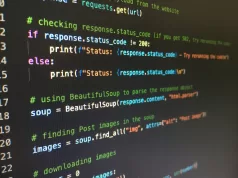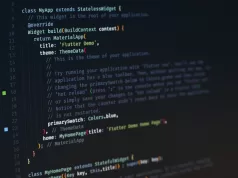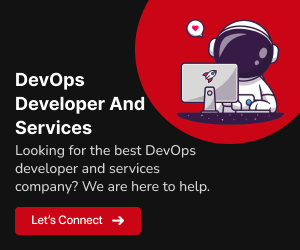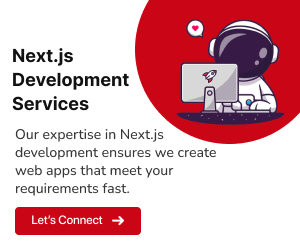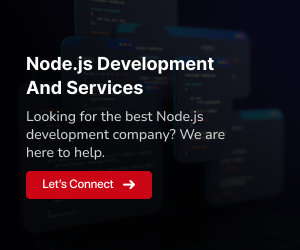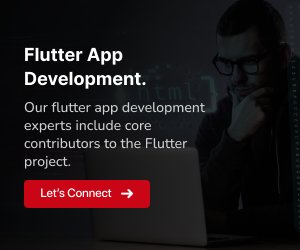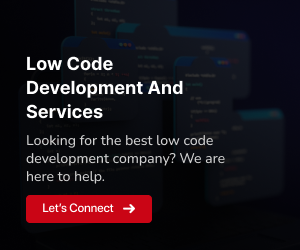Charting the Path to Success: The Skills of Elite Flutter App Developers in the USA
In a landscape dominated by mobile applications, the title of a “successful Flutter app developer” carries immense weight. It signifies technical expertise and a unique amalgamation of skills that drive projects towards excellence. Join us on a journey into the world of these proficient individuals as we delve deep into the remarkable skill set that defines their success in the dynamic realm of app development in the United States. Discover the competencies, insights, and mastery that set them apart and make them the driving force behind cutting-edge Flutter applications. As we explore the key skills, challenges, and strategies that shape their journey, you’ll gain valuable insights into what it takes to thrive in the competitive field of Flutter app development. Welcome to the realm of successful Flutter app developers in the USA, where innovation knows no bounds.
Key Skills for a Successful Flutter App Developer
In the fast-paced and competitive world of mobile app development, being a successful Flutter app developer is not just about writing code. It requires a diverse skill set that goes beyond technical know-how. In this section, we’ll explore the core skills that set apart a thriving Flutter app developer in the USA.
Technical Proficiency
At the heart of it all lies technical proficiency. A successful Flutter app developer is well-versed in the following:
Dart Programming:
Mastery of Dart, the programming language behind Flutter, is essential. A deep understanding of Dart’s syntax, features, and libraries forms the foundation for developing robust Flutter apps.
UI Framework Expertise:
Flutter’s strength lies in its UI framework. Developers should have a strong grasp of creating pixel-perfect user interfaces using Flutter widgets and layouts.
Cross-Platform Development:
Successful Flutter developers excel in writing code that can run seamlessly on both Android and iOS platforms. They understand platform-specific nuances and leverage Flutter’s cross-platform capabilities effectively.
Widget Development:
Widgets are the building blocks of Flutter apps. Proficient developers know how to design custom widgets and reuse existing ones to optimize app development.
Problem-Solving Skills
Mobile app development often presents complex challenges. Successful Flutter developers are adept at problem-solving. They can:
Identify and Debug Issues:
They have the knack for identifying and debugging issues efficiently. Whether it’s a UI glitch or a performance problem, they know how to diagnose and fix it.
Optimize Performance:
Performance optimization is crucial for a seamless user experience. Skilled developers can optimize app performance, making sure it runs smoothly even on less powerful devices.
Troubleshoot Compatibility:
They understand compatibility issues and can ensure the app functions flawlessly across a range of devices and screen sizes.
Communication and Collaboration
Building a mobile app is rarely a solo endeavor. Effective communication and collaboration are key:
Team Collaboration:
Successful Flutter developers work seamlessly within development teams. They can articulate their ideas and contribute constructively to discussions.
Client Interaction:
When working directly with clients, they can translate technical concepts into layman’s terms and ensure clients’ needs are met.
Documentation:
Proper documentation of code and project progress is crucial for collaboration. They excel in creating clear, well-organized documentation that helps team members understand and maintain the codebase.
Continuous Learning
The tech world is constantly evolving, and Flutter is no exception. Successful developers are lifelong learners:
Staying Updated:
They keep up with the latest Flutter updates, libraries, and best practices, ensuring their apps benefit from the latest features and improvements.
Exploring New Technologies:
They are open to exploring new technologies and integrating them into Flutter projects when it makes sense, enhancing the app’s functionality and user experience.
Knowledge of Design Patterns:
A successful Flutter app developer should possess a strong grasp of software design patterns, such as Model-View-Controller (MVC), Model-View-ViewModel (MVVM), or Business Logic Component (BLoC). These patterns serve as architectural templates for structuring code, promoting scalability, and maintaining codebase organization. By leveraging these patterns, developers can create Flutter apps that are not only highly maintainable but also adaptable to evolving project requirements.
Version Control:
Proficiency in version control systems, particularly Git, is crucial for effective code collaboration and management in app development. Git enables developers to track changes, collaborate seamlessly with team members, and manage code repositories efficiently. A successful Flutter app developer should be well-versed in Git workflows, branching strategies, and best practices, ensuring streamlined collaboration and codebase integrity.
Testing and Debugging:
Exceptional skills in testing and debugging are imperative to ensure the reliability and robustness of Flutter apps. This includes expertise in writing various types of tests, including unit tests for individual components, integration tests for testing interactions between components, and widget tests for UI testing. Proficient debugging techniques allow developers to identify and rectify issues swiftly, guaranteeing a smooth and error-free user experience.
State Management:
State management is a pivotal aspect of Flutter app development, and a successful developer should be well-versed in various state management solutions such as Provider, Riverpod, or Redux. These solutions facilitate the efficient management of app data and UI states, ensuring that an app remains responsive and organized as it scales. By choosing the appropriate state management approach, developers can create Flutter apps that are both performant and maintainable.
Accessibility and Localization:
Creating inclusive and globally accessible Flutter apps is essential. A proficient Flutter app developer should possess the skills to make apps accessible to users with diverse abilities, including those with disabilities. Additionally, developers should be capable of implementing localization features to cater to users in various regions and languages. These skills enhance the reach and usability of Flutter apps, promoting inclusivity and user satisfaction.
Cross-Platform Knowledge:
To create Flutter apps that excel on both iOS and Android platforms, developers need an in-depth understanding of platform-specific nuances, differences, and requirements. This knowledge allows for the seamless integration of native features when necessary, ensuring a consistent and platform-specific user experience. Proficiency in cross-platform development is essential for maximizing an app’s reach and effectiveness.
Security Awareness:
Security is a paramount concern in app development. A successful Flutter app developer should be aware of common security vulnerabilities and best practices for safeguarding Flutter apps and user data. This includes knowledge of secure coding practices, data encryption, and protection against threats such as data breaches and unauthorized access. Prioritizing security ensures the confidentiality, integrity, and trustworthiness of Flutter apps.
Performance Optimization:
Flutter app performance directly impacts user satisfaction. A proficient developer should possess the skills required to profile and optimize app performance comprehensively. This includes addressing issues related to animations, memory management, and handling large datasets. By optimizing app performance, developers can deliver smooth and responsive user experiences, even in resource-intensive scenarios.
A successful Flutter app developer possesses a multifaceted skill set that extends beyond coding. They combine technical prowess, problem-solving abilities, effective communication, and a commitment to continuous learning. These skills collectively enable them to create outstanding Flutter apps that captivate users and stand out in the competitive app development landscape.
Interested in pursuing a career as a Flutter developer? Explore our comprehensive guide on How to Become a Flutter App Developer in the USA’ for valuable insights and tips
UI/UX Design Skills: Crafting Exceptional App Experiences
Elevating User Experience:
UI/UX design is all about crafting an intuitive and seamless user experience. A successful Flutter app developer with strong design skills can create layouts, interfaces, and interactions that resonate with users. They understand the importance of user-centered design, which involves empathizing with the end-users, conducting usability testing, and iteratively improving the design based on feedback. This approach ensures that the app aligns with user expectations and provides a satisfying experience.
Enhancing Visual Appeal:
Visual appeal matters significantly in app development. An app with an aesthetically pleasing design is more likely to captivate users and leave a lasting impression. Skilled UI/UX designers know how to use color schemes, typography, imagery, and animations to create visually stunning interfaces. They also pay attention to consistency in design elements across the app, maintaining a cohesive and polished look that reflects the brand’s identity.
Improving Accessibility:
Accessibility is a core aspect of UI/UX design. Designers with expertise in accessibility can make the app usable by individuals with disabilities. They ensure that the app’s design is inclusive, accommodating users with different needs, such as those who rely on screen readers, have limited mobility, or experience color blindness. A strong commitment to accessibility enhances the app’s reach and demonstrates a developer’s dedication to inclusivity.
Streamlining Navigation:
Efficient navigation is essential for guiding users through an app’s features and content. UI/UX designers excel in creating clear and intuitive navigation structures, reducing user frustration and enhancing usability. They optimize user flows, implement effective call-to-action elements, and simplify complex tasks. A well-designed navigation system contributes to smoother user interactions and improved app satisfaction.
Fostering User Engagement:
Engaging users is a primary goal in app development, and UI/UX designers play a key role in achieving it. They leverage their skills to design interactive elements, such as buttons, animations, and gestures, that encourage user interaction. By understanding user behavior and psychology, designers create delightful moments within the app that keep users coming back for more. This engagement is vital for building a loyal user base.
Aligning with Business Goals:
UI/UX design is not only about aesthetics; it’s also a strategic tool. Successful Flutter app developers recognize that design decisions should align with the app’s overarching business goals. Whether it’s increasing user retention, driving conversions, or boosting brand recognition, UI/UX designers incorporate these objectives into their design choices. They aim to create designs that not only look good but also contribute to the app’s success.
For deeper insights into implementing UI in Flutter, explore our blog titled ‘How to Implement Any UI in Flutter’
Problem Solving and Troubleshooting: Navigating Challenges with Precision
One of the defining qualities of a successful Flutter app developer is their problem-solving prowess. In the dynamic landscape of app development, challenges are inevitable. Developers with strong problem-solving skills excel in identifying, analyzing, and resolving issues efficiently. They approach each problem as an opportunity to learn and enhance their skills. Here’s how these abilities contribute to their success:
Analytical Thinking:
Successful developers possess keen analytical thinking, allowing them to dissect complex issues into manageable components. They break down problems, examine root causes, and devise effective solutions. This analytical approach minimizes the time spent on troubleshooting and accelerates the development process.
Debugging Expertise:
Debugging is a fundamental part of app development, and skilled developers are adept at it. They utilize debugging tools and techniques to trace and rectify code errors swiftly. Whether it’s identifying logic flaws, resolving compatibility issues, or squashing pesky bugs, they have the expertise needed to maintain app stability.
Resourcefulness:
Resourcefulness is a valuable trait in problem-solving. Successful Flutter app developers leverage available resources effectively. They explore documentation, seek advice from peers, and engage with online communities to find solutions. This resourceful mindset ensures that challenges do not hinder progress.
Continuous Learning:
Problem-solving is a continuous journey of learning. Accomplished developers understand that technology evolves, bringing new challenges. They stay updated with the latest advancements, adopt emerging best practices, and expand their knowledge base. This commitment to continuous learning equips them to tackle novel issues with confidence.
Project Management and Time Management: Orchestrating Success
Successful app development goes beyond coding—it involves orchestrating projects effectively. Project management and time management skills are instrumental in delivering high-quality apps on schedule. Here’s how these skills contribute to a developer’s success:
Effective Planning:
Developers with strong project management skills excel in planning. They define project scopes, set milestones, and establish clear objectives. This foresight ensures that the development process remains structured and goal-oriented.
Resource Allocation:
Resource allocation is a critical aspect of project management. Successful developers allocate resources efficiently, ensuring that tasks are assigned to the right team members. They optimize resource usage, preventing bottlenecks and delays.
Time Optimization:
Time is a precious commodity in app development. Skilled developers prioritize tasks, set realistic timelines, and adhere to deadlines. Their ability to optimize time management ensures that projects progress smoothly without unnecessary delays.
Risk Management:
Project management involves identifying and mitigating risks. Accomplished developers are proactive in assessing potential challenges and developing contingency plans. This proactive approach minimizes disruptions and keeps projects on track.
Unraveling Challenges in Flutter Development
Flutter development, while highly rewarding, comes with its share of challenges. Developers often grapple with issues related to platform-specific integrations, third-party library compatibility, and ensuring a consistent user experience across various devices. Additionally, staying updated with the latest Flutter updates and best practices can be demanding, as the framework evolves rapidly.
To navigate these challenges effectively and discover strategies for overcoming them, explore our blog titled ‘Challenges Faced by Flutter App Developers in the USA and How to Overcome Them’ It provides valuable insights and solutions to help Flutter developers thrive in the ever-evolving app development landscape, ensuring they are well-equipped to tackle any obstacles that may arise.”
Drawing the Curtain: The Epitome of a Successful Flutter App Developer
As we draw the curtain on our exploration into the world of successful Flutter app developers, it becomes abundantly clear that they are the architects of digital innovation in the United States. These professionals stand at the forefront of a dynamic and ever-evolving field, equipped with a multifaceted skill set that transcends traditional coding abilities. In a rapidly evolving field like mobile app development, staying updated with the latest trends and technologies is crucial. Successful Flutter app developers are lifelong learners who embrace new tools, libraries, and best practices. This commitment to continuous learning empowers them to remain at the forefront of their industry. Thank you for joining us on this enlightening journey through the skills and expertise that define successful Flutter app developers.






